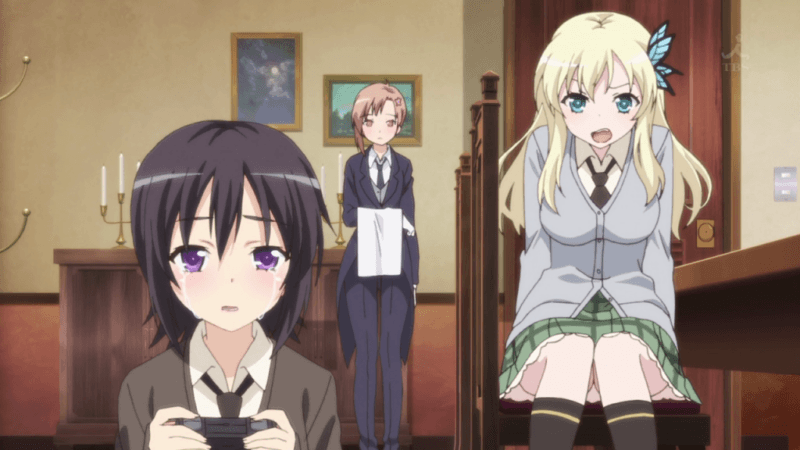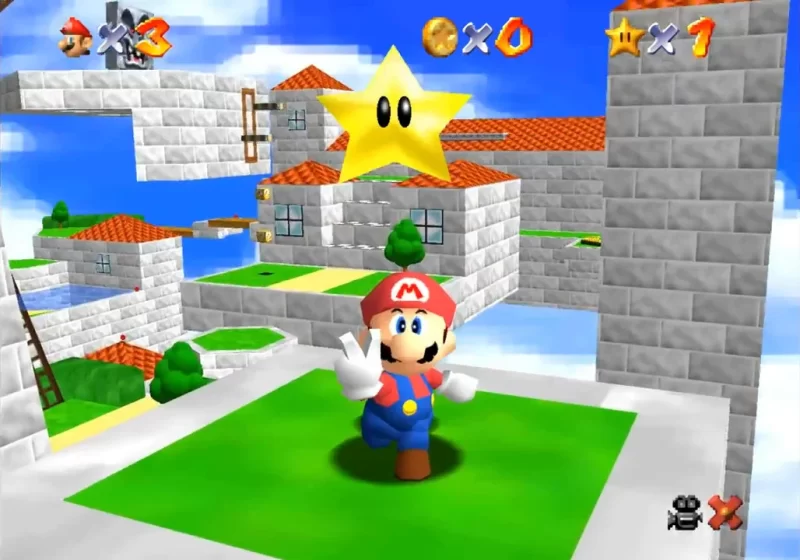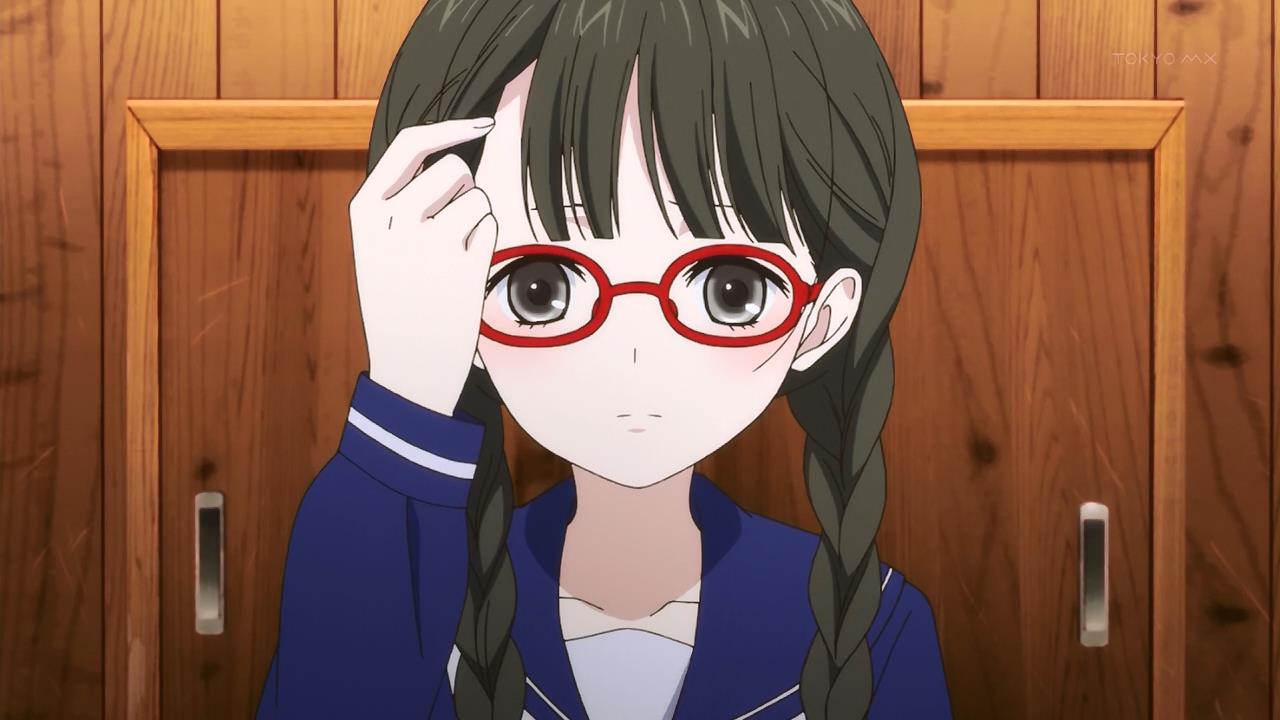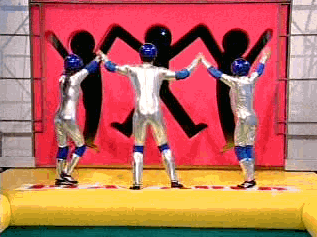
In a survey of 1046 US residents who game at least 4 hours a week, some interesting data about anger shook out. Whether or not these data can be generalized is another question. In any case, the survey (Treanor, 2022) found the following data:
How often do you feel extreme anger while gaming?
| xbox | playstation | pc | switch | |
|---|---|---|---|---|
| One per week: | 38.7% | 46.7 % | 40.1 % | 42.8% |
| Daily or more: | 21.3% | 12.4% | 14.1% | 10.5% |
73.2% people in the survey reported breaking a controller, keyboard, or mouse. Another 15.8% report breaking drywall, punching the wall, I’m assuming.
Even if the samples aren’t able to be generalized, the numbers trouble me as a fellow gamer. I’ve certainly become frustrated with a game, but angry enough to break a controller? The point of gaming is to have fun and relax. Treanor (2022) relays which games caused the respondents to rage; most of the games were competitive with Call of Duty and Mario Kart topping the list. The competitive elements of these games, I suspect, adds to the rage, although 60.7% of respondents stated repeatedly losing at the same level as a source for extreme anger. The terms are a bit soft. Level, to me as a old-school gamer, means a section of the game, such as World 8-1 in Super Mario Bros, but this could extend to matches. Treanor’s article doesn’t specify.
These data can lead to the old arguments surrounding video games, anger, and violence. As a gamer, this level of anger tells me people need to stop playing video games once they become angry. After all, fun is the point of gaming. Not being “leet” or dominating or otherwise being competitive. However, this is JP, so I have to give you some more data. Yes, playing first person shooters like Call of Duty can be bad for your brain. If you have an impulsive personality, you are at greater risk of having Internet gaming disorder (IGD)–an emotional coping disorder characterized by excessive time spent gaming online. The disorder is closely linked with impaired inhibitory control (Shin, 2021). Gaming can reinforce this initial impulsivity and negatively impact your brain (Shin, 2021):
Repetitive and uncontrolled use of Internet games may directly affect brain systems implicated in motivated behavior and self‐control, such as the prefrontal cortex and striatum. Supporting this expectation, patients with IGD have shown decreased functional connectivity of prefrontal and striatal circuits areas.
Translation: playing a lot of Internet games can hurt your ability to control yourself. Look at the number of the survey respondents who broke something in a rage. Gamers who play video games compulsively as an emotional coping mechanism or stress reliever reinforce their behavior by not addressing their problems behind their compulsive gaming. In turn, this drives them to spend more time inside those games, which adds even more momentum toward compulsion and lack of self control. Over time, the brain changes as a result of these habits. And these changes were what Shin (2021) imaged in the study.
Gaming as a Good for the Brain

Not all gaming leads to lack of self-control, punching a wall, or rage. A study of older adults aged 55-77 found playing 3D platformers like Super Mario 64 reverses reduction in the hippocampus and the cerebellum associated with aging and neurological impairments (West, 2017). The hippocampus helps with spatial navigation, memory. and stress regulation. The cerebellum relates to motor-skills, procedural learning, and other memory functions. On the other hand, playing first person shooters exclusively shrinks the hippocampus (West, 2018).
Play Mario and not Call of Duty
Okay, that’s an oversimplification. But the evidence does suggest playing too many competitive games shrinks important areas of your brain, and shrinkage of the grey matter of these areas are linked to neurological disorders late in life. However, playing Mario and other games that require self-control and spatial navigation as West (2017) shows improves the grey matter. It stands to reason, that playing too many FPS and competitive games may be bad for your brain over the long term. This doesn’t mean you should never play such games. Rather, you shouldn’t play them exclusively. Play a variety of games. Different genres require different skills to play well. And these skills engage the brain in different ways. The brain creates stronger circuits based on practice. That’s why if you play FPS often, your hippocampus shrinks. You don’t need spatial navigation when you have a good HUD map. However, games that require you to learn landmarks, like Super Mario 64, strengthens those brain circuits. The anger of gaming may be a habit that strengthens the emotional circuits of anger. Anything repetitive you do strengthens those neural pathways.
The Purpose of Gaming
The purpose of gaming is to relax and have fun. If you are raging, you are gaming wrong. The problem stems from the drive to be better than others. I aim to improve myself when playing cooperative or competitive games. After all, according to this Japanese proverb, it’s the best approach:
I don’t know how to surpass others; I only know how to outdo myself.
Not to mention playing video games with more patience is less expensive than breaking controllers and keyboards! Surveys like Treanor’s report don’t spark the same level of panic as in the past. Frankly, I find the data of the survey ridiculous. Perhaps it’s because the games I grew up with were far harder in general than today’s better-designed games. But if you rage at games, stop playing those games and shift your mindset. Your perspective determines your behavior. Video games can teach you patience, perseverance, cooperation, and other virtues if you approach them without impulsivity and anger. But honestly, if you aren’t having fun playing a video game, what are you doing? I surmise part of the problem is how we wrap our identity and sense of capability into the games we play. I get it. I play healer and support classes in MMOs. I enjoy the challenge and the rush, but once I stop having fun, I’m out. Life is far too short to play a video game you no longer enjoy. Some would argue playing video games is a waste of time, but nothing we do is a waste. All thoughts and actions form us. All the entertainment we consume shapes us. We need to be mindful of how our entertainment changes us, for better or for worse. Because most people game nowadays, research like West’s are important. We need to understand how gaming shapes the brain and our behavior so we can design games that are challenging and fun while benefiting our brain health. We need to understand so we can direct our own brain development in the direction we want it to go.
References
Shin, Y., Kim, H., Kim, S., Kim, J., Shin, Y.-B., Kim, S.-J., & Kim, J.-J. (2021). A neural mechanism of the relationship between impulsivity and emotion dysregulation in patients with Internet gaming disorder. Addiction Biology, 26(3), 1–12. https://doi-org.oh0164.oplin.org/10.1111/adb.1291
Treanor, Ben (2022) Angry Gamers: Which players rage the most. Time2play. https://time2play.com/blog/angry-gamers/
West GL, Zendel BR, Konishi K, Benady-Chorney J, Bohbot VD, Peretz I, et al. (2017) Playing Super Mario 64 increases hippocampal grey matter in older adults. PLoS ONE 12(12): e0187779. https://doi.org/10.1371/journal.pone.0187779
West, G.L., Konishi, K., Diarra, M. et al.(2018) Impact of video games on plasticity of the hippocampus. Mol Psychiatry 23, 1566–1574 . https://doi.org/10.1038/mp.2017.155




Aside from the types of personalities attracted to competitive or FPS gaming, I’m wondering to what extent anger, or some analogous competitive response is amplified by the non-physical nature of online gaming. Is there a frustration induced by challenge to a sense of authority, as a gamer is provided with a sort of corporeally-distanced, God’s eye perspective?
The only experiences I have with anything competitive online (aside from chess or go against other passengers on some long flights) are with things like Wii Fit or Zwift. Especially with the latter, I don’t have the physical energy to feel much of anything by the end of a competition. Likewise in the physical world.
Granted, even athletes can be angered or frustrated during a game. But I feel like emotions that results in destructive acts, especially after a competition is over are different. Thoughts?
Hmm. Video games may not be active enough; so gamers aren’t tired physically and so that manifests as anger. Is that what you mean? Consider the riots that happens when a football team (soccer for Americans) wins or loses. The team’s fans, who have been physically idle but with high emotions, perform the mayhem. If they expended their energy in another way, they would be too tired to riot.
So perhaps the best solution for gamer rage would be for gamers to go run a few laps whenever they feel angry.
Might seem silly, but if you think about it, stress hormones are associated with “fight or flight”; they prime the body for *extreme* physical activity. And there’s a natural endorphin (endogenous morphine) relief that comes with that kind of exertion.
As for the frustration aspect, just a speculation… maybe associated with the remoteness of not having any physical sensation or a lack of real consequence? Perhaps the non-corporeal, God’s-view like nature of the experience result in feelings of loss of authority when things don’t work out as wanted?
I wonder if there’s been more research about this within the video game industry itself. It would matter for game design and keeping people playing and buying items from the in-game stores.
It’s been a while since I posted a comment. I get your blog’s posts by email and I’m enjoying the posts a lot! I’m usually very lazy to comment, though… I’m sorry.
There are a lot of game genres, and the FPS genre is something I never enjoyed, even less, I never liked competitive multiplayer games mostly because I always had anxiety whenever a match-based game was about to start. Thus, most of my online multiplayer time was spent playing casual and social games. In fact, the game I’m making is a casual and social 2D anime multiplayer online game inspired by Japan’s social games of the past.
3D platformers were fun when I still played them, though I spent most of the time just playing Spyro games and sadly never even got to experience a 3D Mario game. Today I am mostly into just 2D indie games and I never really venture into anything mainstream.
I can say however, that even though I play games a lot, I’ve never felt anger strong enough to break something. My most extreme case of frustration was long ago, when I was about 8-10 years old and I cried out of frustration when I couldn’t beat the final bosses of Bubble Bobble 2 on the NES.
Even today, I do what I can to not rely on anger. It’s not a good emotion to me and it makes me feel too subdued by something that can be viewed from a different angle anyway. It’s good to make mistakes, which is something I still need to practice more, too.
I can subtly remember my cousin having outbursts of anger when being defeated by other players in PvP in a competitive MMO… When similar scenarios happened to me when he allowed me to play on a new character, I was just quietly sad and disappointed instead, and that shaped me into a person who avoids competitive games. I don’t get joy by winning over another human player much either, so I always enjoyed PvE co-op instead.
I appreciate this blog a lot. I hope I’ll get motivated enough to comment on previous posts someday, too. Have a great day and great holidays!
Thank you for reading!
As I get older, I find competitiveness immature. It doesn’t matter if its video games or sports, there’s something about zero-sum competitions that strike me as primitive. I’ve drifted back toward story-based video games. We have such a variety of games nowadays! I never liked puzzle games as a kid, but as I get older, they appeal to me more. My younger brother and I will often spend an afternoon playing against each other in puzzle games like Dr. Mario or, for the Nintendo 64, Pokemon Puzzle League. While these are competitive, we don’t care who wins or loses. It’s about the fun.
Do you suspect anger might be a function of age? In other words, as people get older, they grew less angry?
For me, I feel pity in both ways – whenever I won in a competition or whenever I lost in a competition. There was actually one contest and two in-game tournaments I won in a game, and although winning felt great, I also felt a bit bad for others that didn’t make it. Especially when I’ve seen some of their messages before the conclusion, how much they wanted to win and all. I always sort of felt that competitions, contests and tournaments were just bothersome events that didn’t need to exist, but that’s delving into subjective territory as some people are very competitive and enjoy them. Whether it’s immature is probably not for me to say, but I admit I do feel that way about it, too.
There are entire online games with harsh PvP where other players can take other player’s items. Despite the difficulty and danger, there seemed to be a sustainable amount of players in these games last time I checked. Oftentimes, there are predatory practices in these games, where some players or worse, guilds, are allowed to power abuse the entire server and erase all opposition. Now, this is on another level, and I do feel it’s immature.
Yes, but so much for the variety of games, I tend to stay in my old ways and I try new games less often. (new as in new to me, not release date)
Story-based video games are something I enjoyed more in the past while being close to the end of my teenage years, now for some reason while I like story-based games in theory, I realistically don’t give them as much priority. Who knows, maybe I will get to them more as I age. As for puzzle games, I personally enjoyed them more when I was little than now.
Dr.Mario was something my mother played a lot, and I still remember how good she became at it over the many sessions of playing it. I also agree the sort of ‘lighthearted competition’ is a nice thing.
To me, aging is rather individual when it comes to anger. A lot depends about how a person was raised and what they started their early life with. I was raised in a way that made me semi-mellow so I didn’t really rely on anger too much. Sometimes I even had moments when I laughed at my loss in games. Someone called it the ‘exhilaration of chaos’ and it resonates with me. But I mean, people have different levels of obsession about their progress in a game, and are less, or more, willing to lose it than others, but my early childhood playing difficult NES and DOS games probably contributed to my patience and anger resistance, too. (I played them a lot).. I suppose it depends on how a person decides to spend their time in the first place and what experiences make them reflect, but I don’t deny that aging itself can help with reducing anger levels.
Story-based games often take a long time to complete, but the time spent within a multiplayer game can be more over the long term.
It’s hard to know if angry people are more drawn to competitive games or if competitive games make people angry or both. Either way, anger is like holding a hot coal with the intent to throw it at someone: only you get burned, to paraphrase Buddha.
Thanks for sharing your gaming experience! Video games, as with all stories we consume, matter with how they shape our thoughts.